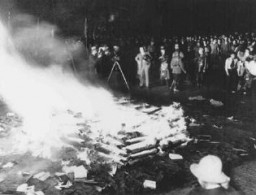You searched for: 缅甸帝威娱乐网址【Aurl:www.8233066.com】送888元.hear
<< Previous | Displaying results 71-80 of 123 for "缅甸帝威娱乐网址【Aurl:www.8233066.com】送888元.hear" | Next >>
-
Frederick Fleszar
ID CardFrederick was the oldest of two sons born to Polish immigrants in Syracuse, New York. In 1922 Frederick's father, who was a musician, moved the family back to Poland where they settled in Poznan. There Frederick started public school and was accepted to the boys section of the prestigious Poznan Cathedral Choir. 1933-39: In 1933, at age 17, Frederick graduated from secondary school and enrolled in medical school at the university at Poznan. He sang with the choir for the last time the day he graduated…
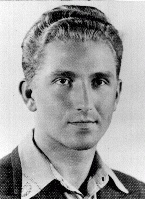
-
Einsatzgruppen trial: US prosecution opens case against Einsatzgruppen members
FilmAfter the trial of major war criminals before the International Military Tribunal in Nuremberg, the United States held a series of other war crimes trials at Nuremberg—the Subsequent Nuremberg Proceedings. The ninth trial before the American military tribunal in Nuremberg focused on members of the Einsatzgruppen (mobile killing units), who had been assigned to kill Jews and other people behind the eastern front. This footage shows US prosecutor Ben Ferencz outlining the purpose of the trial during…
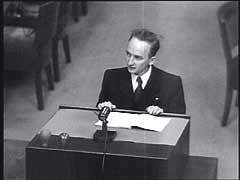
-
Belle Mayer Zeck describes the impact of the Nuremberg trials on her
Oral HistoryBelle Mayer trained as a lawyer and worked for the General Counsel of the US Treasury, Foreign Funds Control Bureau. This bureau worked to enforce the Trading With the Enemy Act passed by Congress. In this capacity, Mayer became familiar with the German I. G. Farben chemical company, a large conglomerate that used slave labor during World War II. In 1945, Mayer was sent as a Department of Treasury representative to the postwar London Conference. She was present as representatives from the Allied nations…
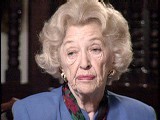
-
Charlene Schiff describes children smuggling food into the Horochow ghetto
Oral HistoryBoth of Charlene's parents were local Jewish community leaders, and the family was active in community life. Charlene's father was a professor of philosophy at the State University of Lvov. World War II began with the German invasion of Poland on September 1, 1939. Charlene's town was in the part of eastern Poland occupied by the Soviet Union under the German-Soviet Pact of August 1939. Under the Soviet occupation, the family remained in its home and Charlene's father continued to teach. The Germans…
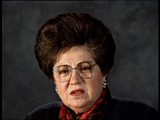
-
Niels Bamberger describes the German invasion of Denmark in 1940
Oral HistoryNiels was raised in a religious Jewish household. In 1932, the family fled to Copenhagen, Denmark, where Niels's father opened an antique store in the mid-1930s. The Germans invaded Denmark in April 1940, but to Niels, little seemed to change during three years of occupation. Upon hearing of German plans to round up Jews in October 1943, Niels and his family decided to flee. A member of the resistance took them to the fishing village of Snekkersten, from where they were able to cross by boat to Sweden.…
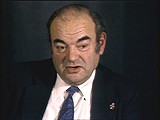
-
Martin Spett describes a massacre of Tarnow Jews
Oral HistoryThe Germans occupied Tarnow in 1939. In 1940 Martin and his family were forced out of their apartment. During the first massacre of Jews, Martin hid in an attic. The family hid during two more roundups. In May 1943 they were registered, allegedly to be exchanged for German prisoners of war, because Martin's mother was born in the United States. They were taken by train to Krakow and then to the Bergen-Belsen concentration camp. Martin was liberated in 1945 and he moved to the United States in 1947.
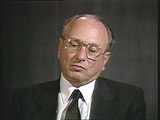
-
Barbara Marton Farkas describes the death march from the Gross-Rosen camp in Germany
Oral HistoryBarbara was born in the province of Arad in northern Transylvania, Romania. She went to school until the Hungarian army occupied the area in 1940 and she was no longer allowed to attend. After the Germans occupied Hungary in 1944, discrimination against Jews intensified. Barbara and her family were forced into the Oradea ghetto. She worked in the ghetto hospital until she was deported to the Auschwitz camp. At Auschwitz, she worked in the kitchens to receive extra food. She was deported to another camp,…
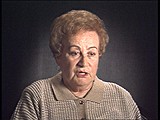
-
Leon Bass describes his knowledge of Nazi camps during and after World War II
Oral HistoryLeon Bass was born in Philadelphia, PA in 1925. He joined the US Army in 1943 and served as a member of the all-Black 183rd Engineer Combat Battalion attached to General Patton's Third Army. Leon's unit was involved in the Battle of the Bulge as well as the liberation of Buchenwald. After the war, Leon went on to receive his doctorate, teach, and speak about the Holocaust and racism. In this interview, Leon describes what he knew about Nazi concentration camps and the Holocaust during and after…
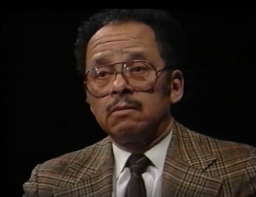
-
Ardeatine Caves Massacre
ArticleNow a national memorial site, the Ardeatine Caves outside Rome were the site of a German reprisal for a bombing by Italian resistance operatives in March 1944.
-
Book Burning
ArticleBook burning is the ritual destruction by fire of books or other written materials. The Nazi burning of books in May 1933 is perhaps the most famous in history. Learn more.
